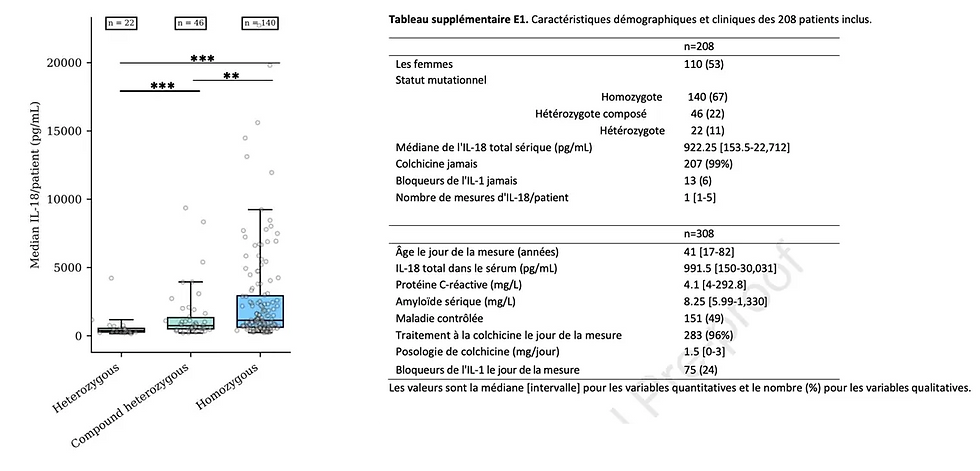- Sophie GEORGIN LAVIALLE
- Feb 5
- 1 min read
In this article, Journal des Femmes Santé reviews the causes, symptoms, and management of the disease, with insights from Professor Sophie Georgin-Lavialle, an internist at Tenon Hospital.

VEXAS syndrome is a rare inflammatory disease, first described in 2020. Its name is an acronym standing for Vacuoles, E1 enzyme (UBA1), X-linked, Autoinflammatory, Somatic. It is caused by an acquired (somatic) mutation of the UBA1 gene, located on the X chromosome, leading to excessive chronic inflammation throughout the body.
This disease primarily affects men over the age of 50. Because the mutations are not present at birth, symptoms appear in adulthood (the youngest patient described was 46 years old).
Common symptoms include:
Anemia
Persistent fever
Severe fatigue
Pain in large joints
Skin lesions
Weight loss and loss of appetite
Cartilage inflammation (ears, nose – chondritis)
Possible lung involvement
Markedly elevated inflammatory markers (CRP)
Diagnosis relies on genetic sequencing, which has made it possible to identify many patients who were previously misdiagnosed with other inflammatory or hematological diseases.
There is no typical acute phase: inflammation is continuous, sometimes with flares.
VEXAS syndrome remains poorly understood, particularly regarding why some individuals develop this mutation while others do not.



